calsfoundation@cals.org
Archibald Washington (Arch) Ford (1906–1987)
Archibald Washington Ford was commissioner of the Arkansas Department of Education from 1953 until his retirement in 1978. He served under five governors: Francis Cherry, Orval Faubus, Winthrop Rockefeller, Dale Bumpers, and David Pryor. Under his leadership, the state undertook significant work to provide a quality education to all students regardless of their race, age, abilities, or location in the state.
Arch Ford was born in Wooster (Faulkner County) on January 25, 1906, to Thomas Noah Ford (1872–1959) and Minnie Lee Clements Ford (1880–1954). He was the fourth of six children. His father was a farmer and a Baptist minister who served on the local school board as well as the Faulkner County Board of Education. His father helped lead the effort to consolidate the county’s 100 school districts into seven districts.
Ford attended a two-room academy in Wooster that ran a six-month term so that the children could help with the cotton crop. When the family moved to Konawa, Oklahoma, in 1919, Ford was able to attend a nine-month school for the first time. He graduated as valedictorian of his eighth-grade class. When the family moved back to Wooster in 1921, he rode his horse ten miles to Conway (Faulkner County) to attend the only high school in the county.
The next year, he attended the training school at Arkansas State Normal School (which became Arkansas State Teachers College—ASTC—in 1925 and later the University of Central Arkansas), where he received his high school diploma in 1924. Ford graduated from ASTC in 1928. Ford received an MA in vocational education and a diploma for advanced study in educational administration from the University of Arkansas (UA) in Fayetteville (Washington County). He was also awarded an honorary doctorate from what is now Ouachita Baptist University in 1962.
During his senior year of college, Ford married Ruby Lee Watson (1908–2005). They had three sons. One son, Joe Ford, served in the Arkansas Senate from 1967 until 1983 and helped his father get several pieces of education-related legislation passed.
Ford taught in several school districts around Arkansas before becoming an educational advisor for the Civilian Conservation Corps (CCC) camp in Jacksonville (Pulaski County) in 1935. In 1941, Ford went to work for the Arkansas Department of Education as a district supervisor of the war training programs in northwestern Arkansas. His next position was supervisor of vocational education. He then became the state supervisor for business education before becoming assistant commissioner in 1948. The Arkansas Board of Education elected him commissioner in 1953.
As the state commissioner of education, Ford wanted to expand educational opportunities in Arkansas because he believed education was the foundation for improving people’s lives. In the wake of the Brown v. Board of Education decision (1954) and the desegregation crisis at Little Rock Central High School in 1957–58, Ford led the state in integrating and improving the quality of all schools.
Ford also established twenty-three vocational-technical schools across the state within driving distance of anyone who needed to gain or improve vocational or technical skills. In 1968, he led the campaign to change Arkansas’s constitution so that five-year-olds and adults could receive state-funded educational services.
During Ford’s tenure, Arkansas extended educational opportunities to those with disabilities. The Arkansas Children’s Colony (now the Conway Human Development Center) was established in Conway in 1959 to provide educational services. By the end of the 1970s, all schools in Arkansas had established special education programs.
In the 1960s, Ford oversaw the establishment of the Arkansas Council on Economic Education (now Economics Arkansas) and the Arkansas Educational Television Network (AETN). To finance these advances, Ford fought to increase funding for education. By the end of his tenure, the education budget was more than half of the entire state budget. Districts had been consolidated so that they could provide services more efficiently. He also advocated for higher teachers’ salaries and better teacher training so that Arkansas could attract and keep quality teachers.
Arch Ford died on June 5, 1987, in Conway after a lengthy illness. He is buried in Bethlehem Cemetery in Greenbrier (Faulkner County). The Arch Ford Education Service Cooperative in Plumerville (Conway County) is named for Ford. The Arch Ford Endowed Scholarship at the University of Central Arkansas supports first-generation college students on the basis of financial need.
For additional information:
Arch Ford Collection. Special Collections. University of Arkansas Libraries, Fayetteville, Arkansas.
Beckman, Cindy Burnett. Man of Vision: Arkansas Education and the Legacy of Arch Ford. Little Rock: Butler Center Books, 2016.
“Former Commissioner of Education Dies at 81.” Arkansas Gazette, June 6, 1987, pp. 1A, 9A.
Ward, John L. “Arch W. Ford: A Quiet Survivor of the Political Maelstrom.” Log Cabin Democrat, January 10, 1979.
Williams, Fay. “Introducing Archie Ford, State Commissioner of Education.” Arkansas Democrat Sunday Magazine, July 19, 1953, pp. 6, 12.
Cindy Beckman
Greenbrier, Arkansas
 Divergent Prosperity and the Arc of Reform, 1968–2022
Divergent Prosperity and the Arc of Reform, 1968–2022 Education, Elementary and Secondary
Education, Elementary and Secondary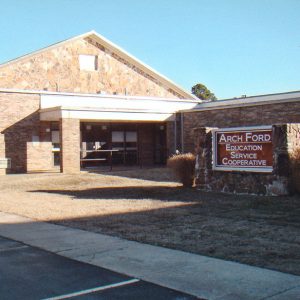 Arch Ford Education Co-op
Arch Ford Education Co-op 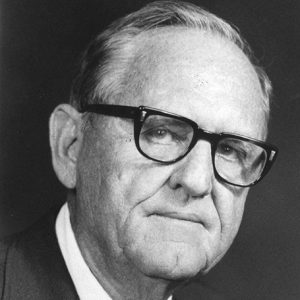 Arch Ford
Arch Ford 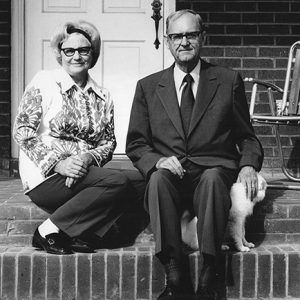 Arch and Ruby Ford
Arch and Ruby Ford 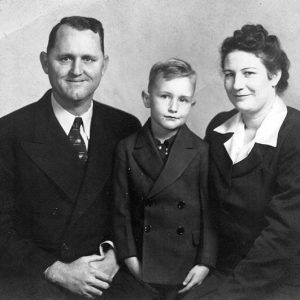 Ford Family
Ford Family 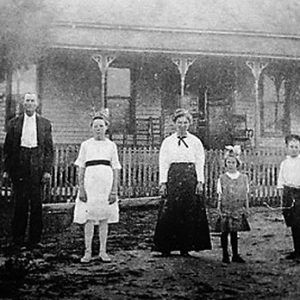 Ford House
Ford House 



Comments
No comments on this entry yet.